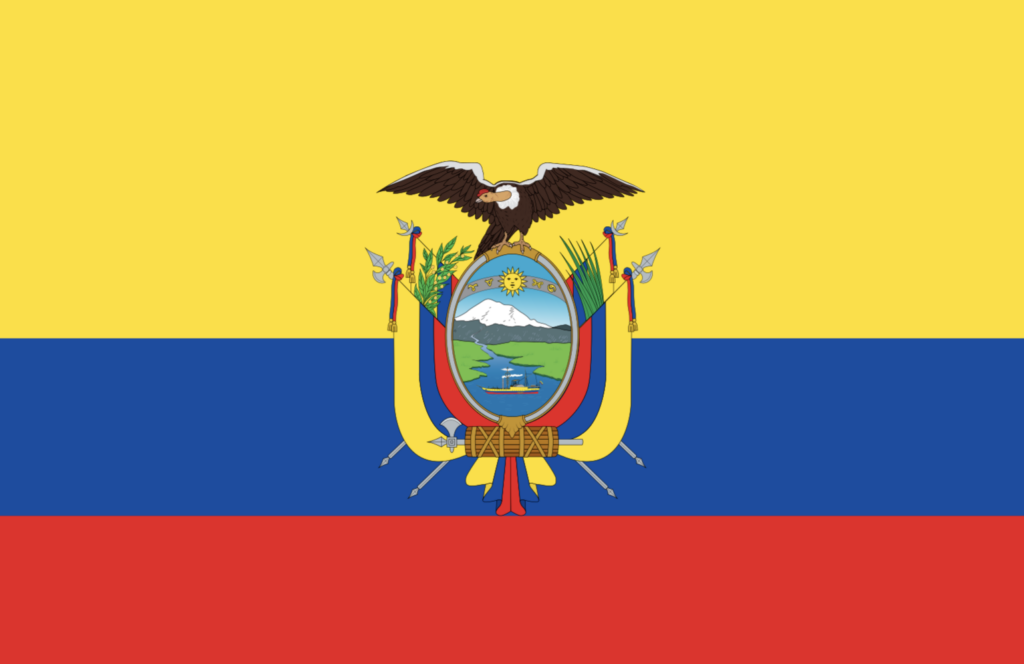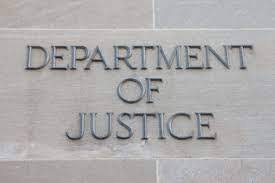Two UK Reinsurance Brokers Settle with DOJ for FCPA Violations in Ecuador (Part I of III)
By MICHAEL VOLKOV, NOVEMBER 27, 2023
DOJ announced two recent FCPA settlements with U.K. based reinsurance brokers involving a long-running bribery scheme involving two Ecuadoran state-owned insurance companies. While DOJ has had a slow year in FCPA enforcement, DOJ is probably likely to announce additional FCPA settlements by the close of the year.

In its most recent announcement, DOJ announced settlements with two U.K.-based reinsurance brokers, H.W. Wood Limited (“Wood”) and Tysers Insurance Brokers (“Tysers”) for their participation in a bribery scheme involving Seguros Sucre S.A. (“Sucre”) and Seguros Rocafuerte S.A. (“Rocafuerte”), two state-owned insurance companies in Ecuador. Wood and Tysers each entered into a three-year deferred prosecution agreement with DOJ and agreed to the filing of a criminal information in the Southern District of Florida.
As part of the settlements, Tysers agreed to pay a fine of $36 million and to forfeit $10.5 million, while Wood successfully argued that it was unable to pay the mandated fine of $22.5 million and to forfeit $2.3 million; instead, DOJ imposed against Wood a fine of only $508,000.
According to DOJ, Tysers and Wood paid $2.8 million in bribes to two executives of Ecuadorian state-owned insurance companies Sucre and Rocafuerte as well as other company’s executives. Both bribery schemes were orchestrated to secure business with Sucre and Rocafuerte. To secure these opportunities, Tysers and Wood enlisted the assistance of a third-party intermediary — Tysers paid $20.3 million and Wood paid $7.9 million in commissions to make the illegal payments.
Tysers

Applying the Corporate Enforcement Policy factors, DOJ cited the following:
(i) Tysers full cooperation with the government’s investigation and continuing commitment to cooperate;
(ii) Tysers timely remediation included placing employees involved in the misconduct on paid administrative leave; terminating engagement with the third-party intermediary company involved in the misconduct; comprehensive review and enhancement of its compliance program, including engaging additional resources with appropriate expertise to assist in evaluating and strengthening its compliance program, making enhancements to the governance and oversight of its compliance program, adding new compliance resources and personnel, updating and enhancing its antibribery and anticorruption policies, enhancing procedures related to onboarding and making payments to third-parties, and enhancing its training programs; and
(iii) Tysers did not receive voluntary disclosure credit. Pursuant to the DPA, Tysers agreed to continue to enhance its compliance program . Tysers agreed to provide annual compliance remediation reports over the three-year term of the DPA.
Based on these factors, DOJ awarded a 25 percent discount from the bottom of the sentencing range, resulting in a penalty of $36 million and to forfeit $10.5 million. Given Tysers’ compliance reporting commitment, DOJ agreed not to impose an independent compliance monitor.
H.W. Wood
Wood did not receive voluntary disclosure credit. Applying DOJ’s Corporate Enforcement Policy factors, Wood received credit for its cooperation with the government’s investigation and timely remediation.
As part of its remediation effort, Wood terminated the employees involved in the misconduct, enhanced its compliance program by creating new positions in the compliance team, implemented a process to ensure continuous monitoring and review of third party relationships, updated and enhanced its policies and procedures, as well as its compliance training and communications. programs.
As noted above, Wood satisfied DOJ’s policy governing its ability to pay the applicable $22,500,000 criminal fine, and DOJ agreed to reduce the penalty to $508,000. Wood also agreed to report on its compliance program enhancements each year during the three-year DPA.
Prior Declination and Disgorgement
On March 18, 2022, DOJ declined to prosecute Jardine Lloyd Thompson Group Holdings (“JLT”), another U.K.-based reinsurance broker, for bribery payments to Ecuadorian government officials to secure valuable insurance contracts with Sucre. JLT agreed to disgorge $29 million as part of the resolution.
Prior Individual Prosecutions
DOJ’s recent settlements are part of a sprawling investigation focused on prosecution of bribery violations involving Ecuador’s stated-owned insurance companies, Sucre and Rocafuerte. Specifically, DOJ has prosecuted eight individuals prior to the recent settlement with Tysers and Wood. These prosecutions include:
- Juan Ribas Domenech (“Ribas”), the former chairman of Sucre and Rocafuerte, pleaded guilty in the Southern District of Florida on Sept. 16, 2020, to a money laundering conspiracy for his role in this scheme.
- Fernando Martinez Gomez (“Martinez”), a financial advisor, pleaded guilty in the Eastern District of New York on March 24, 2022, to two counts, including conspiracy to commit money laundering for on his role in this scheme.
- Esteban Merlo Hidalgo (“Merlo”), a co-conspirator and agent of Tysers and Wood, pleaded guilty in the Southern District of Florida on March 28, 2023 to four money laundering counts.
- Cristian Patricio Pintado Garcia and Luis Lenin Maldonado Matute were each charged with seven criminal counts for their roles in the bribery and money laundering scheme. The two defendants are fugitives.
- Separately, in 2020, the former CEO of JLT’s Colombian subsidiary, Felipe Moncaleano Botero, and two intermediaries, Jose Vicente Gomez Aviles and Roberto Heinert, each pleaded guilty in the Southern District of Florida to one count of money laundering conspiracy.
Bribery scheme

Between 2013 and 2017, Wood and Tysers through its employees and agents unlawfully offered and pay bribes to Ecuadorian officials to secure improper business advantages to obtain and retain business from Sucre and Rocafuerte. In advancing the bribery scheme the third-party agent (which refers to two companies, that were registered in Panama and Ecuador, operated in Miami, Florida, and acted as intermediaries for reinsurance companies) introduced Wood and Tysers to Ribas (who served as the chairman of both Sucre and Rocafuerte and as an advisor to a then-high ranking executive branch official in the Ecuadorian government, therefore Ribas was a foreign official under the FCPA) and other senior employees from Seguros Sucre and Rocafuerte. During the relevant period the third-party agent paid at least $2.8 million to Wood, Tysers and third-party agent to bank accounts in the Southern District of Florida, Panama and Switzerland. Here, the bank accounts of the implicated individuals were held under their names, other third parties and nominee account holders for the officials benefit. In the bribery scheme, payments from Sucre and Rocafuerte to Wood and Tysers financed the payments to the third-party agent that were in turn used to pay the bribes. In addition, Wood paid approximately $7.9 million in commissions and premium payments to the third-party agent and Wood retained commissions of approximately $2.3 million. Tysers paid approximately $20.3 million in commissions to the third-party agent and retained commissions of approximately $10.5 million.
In addition, Wood paid the third-party agent a portion of the commissions for Ecuadorian public reinsurance that the third-party agent helped Wood unlawfully to obtain. In the scheme, Wood collected payment of reinsurance premiums from Sucre and Rocafuerte and would “transfer the co-brokerage commission to the third-party agent plus local acquisition costs that have been added to the offer.”
It is important to note that in Ecuador the use of local brokers and intermediaries was prohibited due to anti-corruption concerns. Therefore, it was critical that the third-party agent remained “invisible” from Sucre and Rocafuerte. In furtherance of the bribery scheme the foreign officials, Wood and Tysers held several secret meetings in the Southern District of Florida. In an effort to keep the bribery scheme under the table Sucre and Rocafuerte CEO were never mentioned in the emails.
To illustrate, in an email from Pintado (general manager of the third-party agent. Furthermore, Pintado acted as an “agent” of H.W. Wood) to Wood’s employee stated “(…) We insist that under no circumstance you should mention [Intermediary Company] in your conversations with the [Seguros Sucre and Rocafuerte] executives.” At last, but not least, to provide an appearance of lawfulness to the bribery scheme, Esteban Merlo (which operated and controlled the third-party agent) emailed Fernando Martinez (worked as a financial advisor for an international investment firm from around 2009 to 2016) a model contract to be used to provide justification for bribe payments made by H.W. Wood and Tysers.















